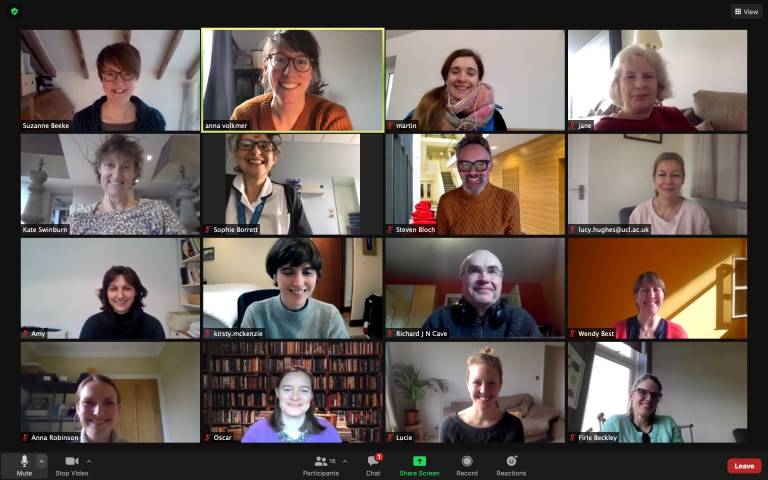
See below for information on the project team. Click on a name to expand and read their biography.
Core team
- Firle Beckley
- Firle is a Stroke Association postgraduate fellow and speech and language therapist based at UCL, supervised by Suzanne Beeke and Wendy Best. Firle’s research interests centre around making real-world changes to the lives of people with aphasia including: making conversations more enjoyable, understanding how a person’s cognition may impact on their rehabilitation potential, developing outcome measure(s) to capture these changes, and working with clinicians to pinpoint clinical questions and barriers to implementation. Firle’s PhD work is outlined here https://www.stroke.org.uk/research/factors-influence-effectiveness-conversation-training-people-aphasia-who-benefits-most-and
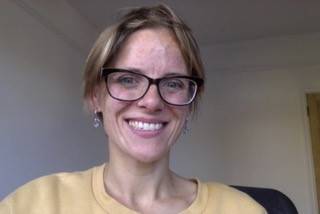
Key publications:
- Beckley, F., Best, W., & Beeke, S. (2016). Delivering communication strategy training for people with aphasia : what is current clinical practice International Journal of Language & Communication Disorders http://doi.org/10.1111/1460-6984.12265
- Beckley, F., Best, W., Johnson, F., Edwards, S., Maxim, J., & Beeke, S. (2013). Conversation therapy for agrammatism: exploring the therapeutic process of engagement and learning by a person with aphasia. International Journal of Language & Communication Disorders, 48(2), pp. ?
Twitter: @firleb
Collaborators:
- Suzanne Beeke
- Suzanne qualified as a speech and language therapist in 1993 from Reading University. After research and clinical work in Edinburgh she joined UCL on a series of ESRC-funded conversation-analytic studies of aphasia. In 2005, Suzanne completed her PhD on the conversations of people with non-fluent agrammatic aphasia, leading to the development of Better Conversations with Aphasia, funded by the Stroke Association and the ESRC. Recently, she was part of the Nottingham-based NIHR funded VOICE Study, which developed communication training for healthcare professionals interacting with people with dementia on acute hospital wards. Suzanne’s research priorities for BCA development include investigation of the conversations of people with Wernicke’s aphasia to develop additional online resources for this group, a survey of current users of BCA to better understand how to support its implementation across the NHS, and using behaviour change theory to better understand how BCA works.
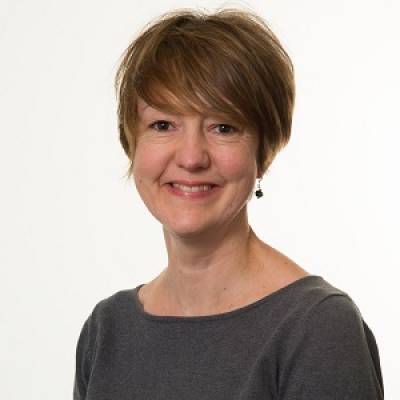
Key publications- Allwood, R, Pilnick, A, O’Brien, R, Goldberg, S, Harwood, R H & Beeke, S. (2017) Should I stay or should I go? How healthcare professionals close encounters with people with dementia in the acute hospital setting. Social Science & Medicine 191, 212-225. www.doi/org/10.1016/j.socscimed.2017.09.014
- Beeke, S., Beckley, F., Best, W., Johnson, F., Edwards, S. & Maxim, J. (2013) Extended turn construction and test question sequences in the conversations of three speakers with agrammatic aphasia. Clinical Linguistics and Phonetics 27 (10-11), 784–804. Open access: http://informahealthcare.com/doi/pdf/10.3109/02699206.2013.808267
- Beeke, S., Beckley, F., Johnson, F., Heilemann, C., Edwards, S., Maxim, J. & Best, W. (2015) Conversation focused aphasia therapy: investigating the adoption of strategies by people with agrammatism. Aphasiology 29 (3), 355-377. Open access: http://www.tandfonline.com/doi/abs/10.1080/02687038.2014.881459
- Beeke, S., Johnson, F., Beckley, F., Heilemann, C., Edwards, S., Maxim, J., & Best, W. (2014) Enabling better conversations between a man with aphasia and his conversation partner: Incorporating writing into turn taking. Research on Language and Social Interaction, 47:3, 292-305. Open access: http://dx.doi.org/10.1080/08351813.2014.925667
- Beeke, S., Maxim, J. & Wilkinson, R. (2007) Using conversation analysis to assess and treat people with aphasia. Seminars in Speech and Language 28(2), 136-147.
Twitter: @BCAphasia
Collaborators:
Dr Jytte Isaksen, Southern Denmark University, Odense, Denmark
- Wendy Best
- Wendy Best is Professor of Communication Science and Language Therapy and a Speech and Language Therapist. She has expertise in intervention research and a particular interest in linking research and clinical practice. She directs the UCL Centre for Speech and Language Intervention Research.
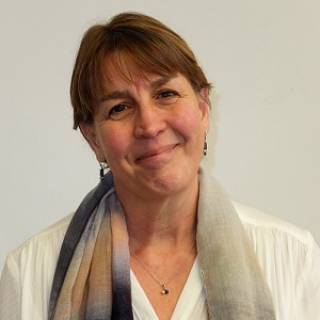
Wendy has been part of Better Conversations from the start. She helped devise and evaluate Better Conversations with Aphasia (BCA) with PI Dr Suzanne Beeke. Together with SLT Lucy Hughes and Dr Caroline Newton she is developing and trialling Better Conversations with Children (BCC), a new intervention for children with Developmental Language Disorder and their carers.
She leads research which develops assessments and interventions to optimise communication, with a particular focus on word retrieval and on conversation. Recent collaborations include projects establishing core components in therapy, contributing to the Aphasia Impact Questionnaire-21, and vocabulary & reading interventions with children.
Key publications:
- Best W., Maxim J., Heilemann C., Beckley F., Johnson F., Edwards S. I., Howard D. and Beeke S. (2016) Conversation Therapy with People with Aphasia and Conversation Partners using Video Feedback: A Group and Case Series Investigation of Changes in Interaction. Front. Hum. Neurosci. 10: 562. doi: 10.3389/fnhum.2016.00562
- Dyson, H., Best, W., Solity J. & Hulme, C. (2017) Training Mispronunciation Correction and Word Meanings Improves Children’s Ability to Learn to Read Words, Scientific Studies of Reading, 21:5, 392-407, DOI: 10.1080/10888438.2017.1315424
- Best, W., Hughes, L. M., Masterson, J., Thomas, M., Fedor, A., Roncoli, S., Fern-Pollak, L, Kapikian, A. et al., (2017) Intervention for children with word-finding difficulties: A parallel group randomised control trial. International Journal of Speech-Language Pathology, 20 (7), 10.1080/17549507.2017.1348541
- Swinburn, K., Best, W., Beeke, S., Cruice, M., Smith, L., Pearce Willis, E., Ledingham, K. Sweeney J., & McVicker, S.J. (2018). A concise patient reported outcome measure for people with aphasia: the aphasia impact questionnaire 21, Aphasiology, DOI: 10.1080/02687038.2018.1517406.
- Johnson, F., Beeke, S., Best, W. (2020) Searching for active ingredients in rehabilitation: applying the taxonomy of behaviour change techniques to a conversation therapy for aphasia. Disability and Rehabilitation DOI: 10.1080/09638288.2019.1703147.
- Sze, W. P., Hameau, S., Warren, J., Best, W. (2021) Identifying the components of a successful spoken naming therapy: A meta-analysis of word-finding interventions for adults with aphasia. Aphasiology, 35 (1), 33-72.
- Nickles, L., Fischer-Baum, S., and Best, W. (2022) Single case studies are a powerful tool for developing, testing and extending theories
Nature Reviews, 1, 733- 747 https://rdcu.be/c0eH5
Twitter: @wbestsea
- Steven Bloch
- Steven is a Professor in communication and social interaction at UCL. He graduated as a speech and language therapist from Birmingham Polytechnic in 1991. Following 12 years of clinical practice in adult community settings, and an interest in conversation analysis (CA), he completed a PhD at UCL, investigating the everyday interactions of people with dysarthria arising from motor neurone disease (MND). His NIHR post-doctoral fellowship work widened the application of CA to people with acquired dysarthria with an emphasis on how CA principles might inform clinical assessment and intervention. His current work includes a Better Conversations with Parkinson’s telehealth feasibility study, funded by Parkinson’s UK, and the development of a new online conversation support website for people living with MND, in association with the MND Association. He is also investigating end-of-life care interactions in collaboration with Professor Paddy Stone, Marie Currie Chair of Palliative Medicine, and researching MND Connect helpline interactions with Emeritus Professor Charles Antaki (Loughborough) and Professor Gerry Leydon (Southampton).
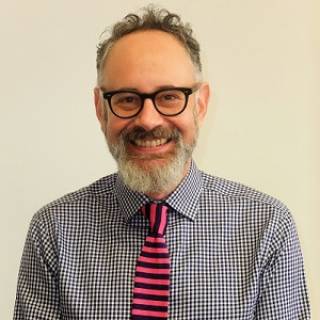
Key publications
- Anderson, R., Stone, P., Low, J, & Bloch, S. (2020) Managing uncertainty and references to time in prognostic conversations with family members at the end-of-life: a conversation analytic study. Palliative Medicine
- Bloch, S. & Barnes, S. (2020) Dysarthria and other-initiated repair in everyday conversation. Clinical Linguistics and Phonetics.
- Bloch, S. & Antaki, C. (2019) The pivot-point between problem-presentation and advice in a health-helpline service. Applied Linguistics, Vol 40, Issue 4, p.699–716
- Bloch, S., & Tuomainen, J. (2017) Progressive dysarthria and augmentative and alternative communication in conversation: Establishing the reliability of the Dysarthria-in-Interaction Profile. International Journal of Language and Communication Disorders. 52(1) 3-9
- Bloch, S. (2013) Conversation and interaction in degenerative diseases. In Yorkston, K. M., Miller, R. M., Strand, E. A. (Eds.). Management of speech and swallowing in degenerative diseases (Third ed. pp.195-220). Austin, Texas: Pro-Ed.
Twitter: @steven_bloch
Collaborators:
Professor Charles Antaki, Loughborough University, UK
Dr Scott Barnes, Macquarie University, NSW, Australia
- Claudia Bruns (née Heilemann)
- Claudia qualified as a speech and language therapist at the University of Munich and joined the ‘Better Conversations’ team in 2012. She developed a treatment fidelity tool and carried out a fidelity study of ‘Better Conversations with Aphasia’. She also prepared materials to be included in the ‘Better Conversations with Primary Progressive Aphasia’ e-learning resource. In 2018, she completed her PhD at UCL, supervised by Dr Suzanne Beeke, Prof Rosemary Varley and Dr Vitor Zimmerer. Her PhD research explored aphasic language from the perspective of usage-based construction grammar. She is particularly interested in usage frequency beyond the single word level; particularly, how people with post-stroke aphasia use and recognize common multi-word combinations, and how such combinations can be applied to aphasia rehabilitation. She worked as a postdoctoral researcher on the UTILISE (Unification Therapy Integrating LexIcon and SEntences) project. Claudia has recently started her Stroke Association-funded Postdoctoral Fellowship project, in which she explores the best ways to deliver the UTILISE app, continuing the evaluation of sentence (tele-)therapy for aphasia.
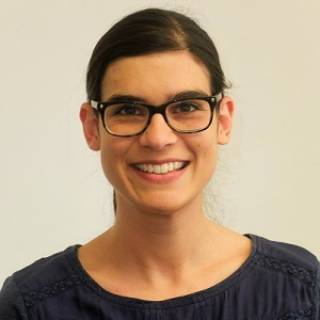
Key publications:
- Bruns C., Beeke, S., Zimmerer, V.C., Bruce, C., & Varley, R.A. (2021). Training flexibility in fixed expressions in non-fluent aphasia—a case series report. International Journal of Language & Communication Disorders, 56, 1009– 1025. https://doi.org/10.1111/1460-6984.12652
- Varley, R., Bruns, C., Warren, J., Dąbrowska, E., & Javadi, A.-H. (2020, March 18). Computer therapy combined with non-invasive brain stimulation for sentence processing difficulties in post-stroke aphasia: a randomised control trial (the UTILISE study). OSF Preprints, doi:10.31219/osf.io/fduqh
- Bruns, C., Varley, R., Zimmerer, V.C., Carragher, M., Brekelmans, G., & Beeke, S. (2019). “I don’t know”: a usage-based approach to familiar collocations in non-fluent aphasia. Aphasiology. 33(2), 140-162. DOI: 10.1080/02687038.2018.1535692
- Heilemann, C., Varley, R., Zimmerer, V., & Beeke, S. (2017). "A great deal" versus "a fair deal": Does collocation strength determine processing speed in aphasia? Poster presentation. 18th International Science of Aphasia Conference, Geneva, 11-14 September, Stem-, Sprak- en Taalpathologue, 22, Suppl 2, 75-77. (available at: http://sstp.nl/article/view/30097)
- Heilemann, C., Best, W., Johnson, F., Beckley, F., Edwards, S., Maxim, J., & Beeke, S. (2014). Investigating treatment fidelity in a conversation-based aphasia therapy. Aphasie und verwandte Gebiete (2), 14-26. (available at: http://discovery.ucl.ac.uk/1446926/)
Twitter: @claudihei
Collaborators:
Dr Marcella Carragher, La Trobe University, Melbourne, Australia
- Philippa Clay
- Philippa qualified as a speech and language therapist in 2015 from UCL. She has worked as a speech and language therapist in the NHS and New Zealand, specialising in acquired neurological conditions. Philippa joined the Better Conversations team in 2021 as a Research Assistant for the Better Conversations with Parkinson's study. This research focuses on developing and piloting a Better Conversations approach for people living with Parkinson's and their family members and friends.
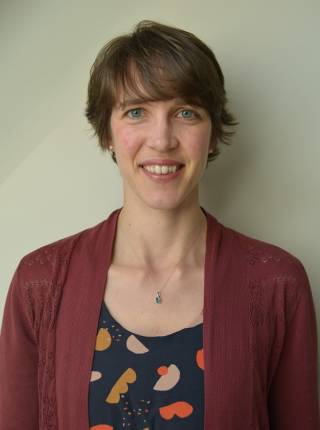
Key publications:
Clay, P., Beeke, S., Volkmer, A., Dangerfield, L., Bloch, S. (2023) A Communication Partner Training Program Delivered via Telehealth for People Living With Parkinson's (Better Conversations With Parkinson's): Protocol for a Feasibility Study. JMIR Research Protocols. 12, e41416
Twitter:@pclaySLT
- Lucy Hughes
- Lucy's PhD research, with supervisors Wendy Best and Caroline Newton, focuses on developing and evaluating Better Conversations with Developmental Language Disorder (BCDLD); a new intervention for primary school-aged children with DLD and their main carers. The programme incorporates principles and methods from conversation analysis-based therapy, including Better Conversations with Aphasia, and parent-child interaction therapy (Falkus et al, 2016). The study employs a conversation-analytic framework to examine patterns in adult-child talk, with specialist support from Juliette Corrin. Lucy is employed as a Research Speech and Language Therapist at Moor House Research and Training Institute, designing and leading intervention studies within both mainstream and specialist education settings. Prior to this work, Lucy practised as a specialist speech and language therapist in schools, health centres and language units across London and Surrey. She also worked as a research associate on the Word Retrieval and Development (WoRD) Project. As part of her ESRC-funded doctoral training, Lucy has collaborated with Julie Radford and Paula Bosanquet (IOE, UCL's Faculty of Institute of Education and Society), investigating the conversational turns of teaching assistants when interacting with children within the classroom: https://maximisingtas.co.uk/research/ta-talk-studies.php
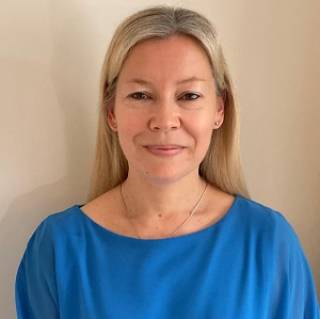
Key publications:
- Best, W., Hughes, L. M., Masterson, J., Thomas, M., Fedor, A., Roncoli, S., Fern-Pollak, L., Shepherd, D., Howard, D., Shobbrook, K. & Kapikian, A. (2017). Intervention for children with word-finding difficulties: a parallel group randomised control trial. International Journal of Speech-Language Pathology, 1–12.
- Best, W., Fedor, A., Hughes, L., Kapikian, A., Masterson, J., Romcoli, S., Fern-Pollak, L. and Thomas, M. S. C. (2015). Intervening to alleviate word-finding difficulties in children: Case series data and a computational modelling foundation. Cognitive Neuropsychology, 32 (3-4). Special Issue: Treatment as a tool for investigating cognition, 133 – 168.
- Hughes, L., Masterson, J., Thomas, M., Fedor, A., Roncoli, S., Kapikian, A., Fern-Pollak, L. & Best, W. (2013). The WORD project: a case series study on intervention for developmental word-finding difficulties. Stem-, Spraak- en Taalpathologie, 18, 48-51.
- Jane Maxim
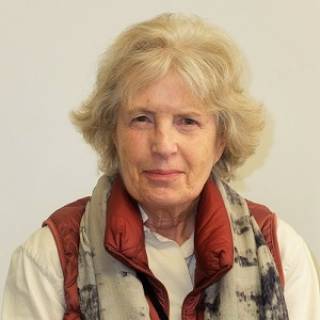
Jane Maxim is an Emeritus Professor at UCL. Her area of research investigates acquired speech, language, communication and cognitive difficulties in adults. Jane was part of the original team at Better Conversations with Aphasia. She was a longstanding member of the Department of Language and Cognition and was head of department for many years.
Key publications:
Lock, S., Wilkinson, R., Bryan, K., Maxim, J., Edmundson, A., Bruce, C., & Moir, D. (2001). Supporting partners of people with aphasia in relationships and conversation (SPPARC). International Journal of Language & Communication Disorders, 36(sup1), 25-30.
Beeke, S., Maxim, J., & Wilkinson, R. (2007, May). Using conversation analysis to assess and treat people with aphasia. In Seminars in Speech and Language (Vol. 28, No. 02, pp. 136-147). Copyright© 2007 by Thieme Medical Publishers, Inc., 333 Seventh Avenue, New York, NY 10001, USA.
Wilkinson, R., Beeke, S., & Maxim, J. (2010). Formulating actions and events with limited linguistic resources: Enactment and iconicity in agrammatic aphasic talk. Research on language and social interaction, 43(1), 57-84.
- Nicola Sirman
- Nicola is a speech and language therapist working independently and in the NHS. She qualified in 2009 and has since developed specialisms working with adult neurology and dysfluency. From 2012 Nicola worked at University College London as a research assistant on the Better Conversations with Aphasia (BCA) project, which sparked her interest in supporting clinicians to develop their skills in using communication partner training approaches. During her time at UCL she also worked as a teaching fellow supporting students on the pre-qualification speech and language therapy programmes. Nicola started her independent practice, called Coastal Speech Therapy, in 2016 www.coastalspeechtherapy.co.uk working across the south coast of England. She specialises in delivering Better Conversation approaches to clients with a range of communication needs and supervising other SLTs to develop their practice. You can find her on Twitter @CoastalSLT.

Key publications:
- Beeke S, Sirman N, Beckley F, Maxim J, Edwards S, Swinburn K, & Best W. (2013). Better Conversations with Aphasia: an e-learning resource. Available at: https://extend.ucl.ac.uk/
- Sirman N, Beeke S, & Cruice M. (2017). Professionals’ perspectives on delivering conversation therapy in clinical practice. Aphasiology, 31(4), 465-494. DOI: 10.1080/02687038.2017.1278739
Twitter: @CoastalSLT
Website: www.coastalspeechtherapy.co.uk
- Kate Swinburn
Kate is an honorary lecturer at UCL with expertise in acquired communication disability, Patient Reported Outcome Measurement, and user involvement. She was a member of the Better Conversations with Aphasia development team. She worked as a clinical SLT for 15 years in acute, rehabilitation and community settings. In 2004, Kate completed her PhD on Patient Reported Outcome Measurement. She worked for 10 years in the voluntary sector, for Connect – the communication disability network. She managed publications, training and latterly the influencing programme (working with the CQC, National Stroke Improvement, the Department of Health and National Commissioning Support). She has written and co-authored three assessments; the Comprehensive Aphasia Test, the Communication Disability Profile and the Aphasia Impact Questionnaire). Kate contributed to undergraduate and postgraduate training and academic projects with several universities, currently working in research at City University. In 2011, she was awarded a Fellowship of the RCSLT.
Key publications:
- Swinburn K., Best W., Beeke S., Cruice M., Smith L., Pearce Willis E., Ledingham K., Sweeney J. & McVicker S.J. (2018) A concise Patient Reported Outcome Measure for people with aphasia: The Aphasia Impact Questionnaire Aphasiology DOI: 10.1080/02687038.2018.1517406
- Swinburn K. (2018) Aphasia Impact Questionnaire-21 www.aiq-21
- Swinburn K., Porter G. & Howard D. (2004) The Comprehensive Aphasia Test www.psypress.com/books/details/9781841693798/
Twitter: @KateSwinburn
Website: www.aiq-21.net
Collaborators:
Madeline Cruice, City University of London
Lucy Dipper, City University of London
Jane Marshall, City University of London
Mary Boyle, Montclair State University
- Anna Volkmer
- Anna graduated as a speech and language therapist from UCL in 2002. Since then Anna has worked with adults with acquired neurological conditions across England and Australia. She completed a Masters of Clinical Rehabilitation at Flinders University, South Australia, in 2009. Since returning to the UK in 2010, Anna has written three books; the first focusing on the assessment and management of communication in dementia, the other two on the role of the speech and language therapist in mental capacity. In 2020 Anna finished her NIHR Doctoral Research Fellowship to complete her PhD at UCL, supervised by Suzanne Beeke and Aimee Spector. Her research focused on developing and piloting Better Conversations with Primary Progressive Aphasia (BCPPA), for people with PPA and their communication partners. She now holds a post-doctoral NIHR Development Skills Enhancement Award and is continuing to develop this work, alongside her commitment as a Senior Teaching Fellow in the department and a Senior Speech and Language Therapist at the National Hospital for Neurology and Neurosurgery.
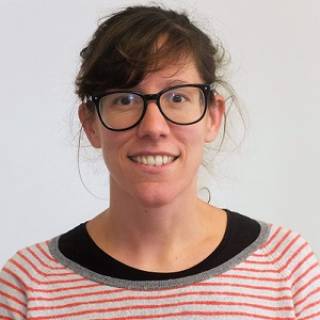
Key publications:
- Volkmer, A., Spector, A., Warren, J. D., & Beeke, S. (2018a). The ‘Better Conversations with Primary Progressive Aphasia (BCPPA)’ program for people with PPA (Primary Progressive Aphasia): protocol for a randomised controlled pilot study. Pilot and Feasibility Studies, 4(1), 158.
- Volkmer, A., Spector, A., Warren, J. D., & Beeke, S. (2018b). Speech and language therapy for primary progressive aphasia: referral patterns and barriers to service provision across the UK. Dementia, 1471301218797240.
- Marshall, C. R., Hardy, C. J., Volkmer, A., Russell, L. L., Bond, R. L., Fletcher, P. D., & Fox, N. C. (2018). Primary progressive aphasia: a clinical approach. Journal of Neurology, 265(6), 1474-1490.
Twitter: @volkmer_anna
Collaborators:
Professor Aimee Spector, Dept of Clinical, Educational and Health Psychology, UCL
- Fiona Johnson
- Fiona is a thoughtful and creative Speech & Language Therapist with over 12 years experience, primarily working in NHS community neuro rehabilitation roles alongside her involvement in research. Having graduated at UCL in 2008, Fiona went on to complete PhD research with the Better Conversations Team. This work pioneered the application of behaviour change theory within communication interventions in order to explore how therapy works to help people and their families make changes and develop new strategies for conversations after stroke. She has delivered training on the use of behaviour change theory and tools in Speech & Language Therapy to clinicians working in voice, paediatrics, and adult neurology, and has presented her research at the British Aphasiology Society Therapy Symposium, RCSLT Conference, International Clinical Phonetics and Linguistics Association Conference and UK Stroke Forum. She has also delivered a keynote talk at the Better Conversations Lab Conference. She continues to wok clinically and is also currently involved as a collaborator on the APT project, which seeks to develop a new theory-based partnership training programme for people with aphasia and their conversation partners.
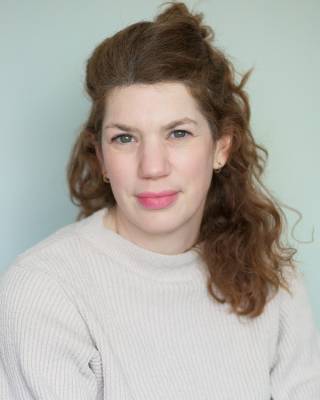
Key Publications:
- Johnson, Best, Beckley, Maxim & Beeke (2017) Identifying mechanisms of change in a conversation therapy for aphasia using behaviour change theory and qualitative methods. Int. Journal Lang Commun Disord, May–June 2017, Volume 52, NO. 3, 374–387 https://doi.org/10.1111/1460-6984.12279
- Johnson, F., Beeke, S., Best, W. (2020) Searching for active ingredients in rehabilitation: applying the taxonomy of behaviour change techniques to a conversation therapy for aphasia. Disability and Rehabilitation, 1-11. DOI: 10.1080/09638288.2019.1703147.
- Susan Edwards
Susan Edwards is Professor Emeritus, University of Reading, UK. Her area of research investigates acquired and developmental disordered language, within experimental and clinical regimes. Susan was part of the original team that developed Better Conversations with Aphasia. She has years of clinical experience and has taught students of speech/language therapy, linguistics and psychology. Her current academic activities include advising various universities and reviewing academic papers for a number of journals. She has authored a range of peer reviewed papers and books including:
Key publications:
- Edwards, S, & Salis, C. (2016) Aphasia from a Neurolinguistic Perspective. In Oxford Research Encyclopaedia of Linguistics. Oxford University Press.
- Edwards, S. & Salis, C. (2011) Aphasia Oxford Bibliographies of Linguistics. www.oxfordbibliographiesonline.com.
- Edwards, S., Letts, C. & Sinka, I. (2011) The New Reynell. Granada Publishing
- Edwards, S. & Varlokosta, S. (2007) Pronominal reference and agrammatic comprehension. Journal of Neurolinguistics 20, 423-444
- Edwards, S. (2005) Fluent Aphasia. Cambridge University Press.
- Richard Talbot
- Richard is a research assistant on the project ‘Better Conversations with PPA and other rare dementias’ (BCPPA). He is also an NIHR funded PhD student in the department of Language and Cognition. Richard’s research focusses on how to optimise real world implementation of BCPPA and adding a discourse level outcome measure. Richard’s interest in clinical implementation of communication interventions for people living with PPA and other progressive diseases, especially those delivered via telehealth has come from a decade of experience working as a researcher on aphasia technology (EVA Park), discourse (LUNA) and implementation (EVA Park Early Adopters) projects.
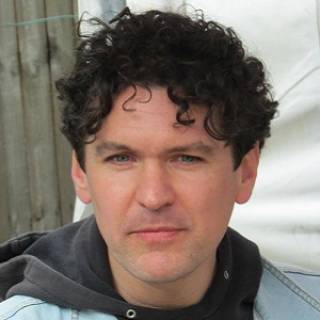
Richard is also a speech and language therapist with many years clinical experience in a variety of adult neurology settings, mainly in community teams working with people with aphasia and progressive neurological conditions. He currently works as an honorary speech and language therapist in the cognitive disorders clinic at Queen Square, in his RA role. He also works in independent practice with a collective of SLTs, working with people living with primary progressive aphasia (PPA) and other rare dementias.
Key publications:
Marshall, J., Devane, N., Berraondo, J., Talbot, R., Temponera, P., Clegg, K., & Wilson, S. (2023) Delivering script therapy for people with aphasia in EVA park: Two single case treatment studies. Advances in Communication and Swallowing DOI: 10.3233/ACS-220014
Cruice, M. Aujla, S., Bannister, J., Botting, N. Boyle, M., Charles, N., Dhaliwal, V, Grobler, S., Hersh, D., Marshall, J., Morris, S., Pritchard, M., Scarth, L, Talbot, R. & Dipper, L. (2021) Creating a novel approach to discourse treatment through coproduction with people with aphasia and speech and language therapists. Aphasiology, DOI: 10.1080/02687038.2021.1942775
Marshall, J., Devane, N., Talbot, R., Caute, A., Cruice, M. Hilari, K., MacKenzie, G., Maguire, K., Patel, A., Roper, A., & Wilson, S. (2020) A randomised trial of social support group intervention for people with aphasia: A Novel application of virtual reality. PLoS ONE 15(9).
Marshall, J., Booth, T., Devane, N., Galliers, J., Greenwood, H., Hilari, K., Talbot, R., Wilson, S. & Woolf, C. (2016) Evaluating the Benefits of Aphasia Intervention Delivered in Virtual Reality: Results of a Quasi-Randomised Study. PLoS ONE 11(8). https://doi.org/10.1371/journal.pone.0160381
Collaborators and students:
- Sharon Adjei-Nicol
- Becky Anderson
- Jo Armstrong
- Freyja Bell
- Sophie Borrett
- Andrea Bruun
- Kirsty Catling
- Richard Cave
- Christina Chu
- Kerry Dathan
- Jess Foulkes
- Sarah Griffiths
- Charly Harris
- Anna Hockley
- Lucie Hogger
- Susan Howell
- Kerri Ichikowitz
- Claudia Olivares Matus
- Amy Pundole
- Lena Sakure
- Anna Sowerbutts
- Alex Stirling
- Rosemary Townsend
- Asta Tuomenoksa
- Susie Williams
- Ingvild Winsnes
 Close
Close

